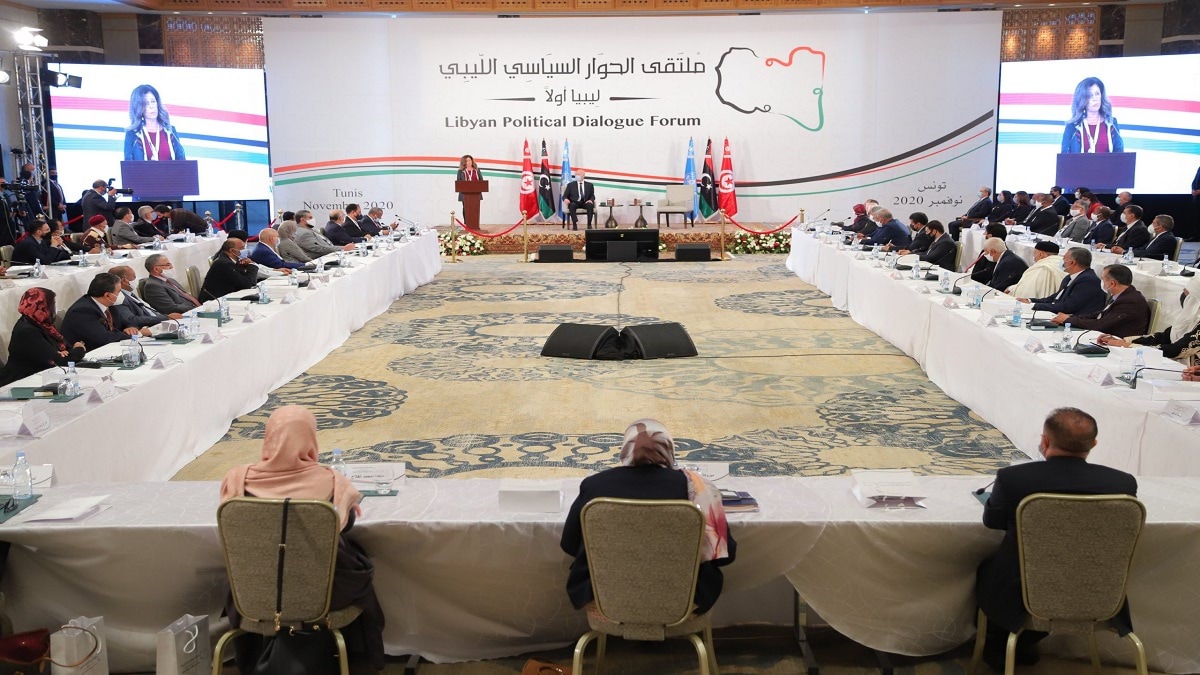CAIRO, Egypt (North Press) – Stephanie Williams, head of the United Nations Support Mission in Libya, stated on Sunday that the Libyan talks in Tunisia ended up without reaching a decision to create a unified government.
Williams told journalists in a virtual press conference that the Libyan talks will continue virtually next week, to agree on mechanisms and criteria for selecting the personalities who will assume power in the future.
The civil war in Libya began in 2014 between two rival factions – the Tobruk-based House of Representatives (HoR), which is militarily supported by the Libyan National Army (LNA) led by Marshal Khalifa Haftar, and the UN-recognized, Tripoli-based Government of National Accord (GNA), led by Prime Minister Fayez al-Sarraj. The country has witnessed chaos and bloodshed since the uprising against the country’s leader Muammar Gaddafi in 2011.
Libyans at the talks agreed to hold national parliamentary and presidential elections in December next year, the United Nations said.
Williams said that she is very satisfied with the outcomes of these negotiations, especially with regard to a preliminary agreement on a road map and presidential elections, in addition to the powers of the executive authorities. She added that the road map also outlines steps to begin a process of national reconciliation, transitional justice, and addressing the plight of displaced people.
She noted that ten years of conflict cannot be resolved in one week.
The United Nations did not immediately specify what powers would be given to the head of the Presidency Council, whose assignment to the position of commander of the armed forces was under discussion.
About 75 Libyan participants, represent deputies, members of the High Council of State (a UN-backed advisory body created to advise both disputing parties and support peace talks), notables, and representatives of the three regions (Tripoli, Cyrenaica, and Fezzan), chosen by the global body have been meeting in Gammarth, Tunisia since Monday.
The talks in Tunis followed a ceasefire agreed on in October between the two major sides in the country’s war.
The sovereignty of the Libyan state
A Libyan politician spoke about the political solution in his country after the important steps that were taken during the UN-led Tunis Talks.
Ibrahim Belqassem, in statements to North Press, pointed out to Turkey’s diminishing chances to remain in Libya, stressing that Turkey’s ambitions in Libya are limited to the impact of internal consensus and reject any external interference, and with regional and international rejection of the Turkish role.
Belqassem said “The Libyan talks enjoy broad support from the political parties, so any agreement to name the head of a national unity government means that he is a person who is endowed with all powers, and enjoys all national, regional, and international support as well.”
He pointed out that the UN-led Military Committee, with wide international support, is seeking to develop a plan to remove foreign fighters from the region within ninety days.
“There are about eight countries that have foreign fighters inside Libya, and these fighters are hindering stability in Libya in conjunction with the political agreement,” Belqassem added.
Turkish retreat
The Libyan politician stated that the Turkish role is declining and that Ankara has withdrawn a large part of the foreign fighters it brought to fight in Libya.
“Turkish interests have become effectively threatened, and Turkey is reconsidering and rethinking its strategic interests by resorting to dealing with the upcoming new power with a new reality and with respect to the will and sovereignty of the Libyan state,” he stated.
“Turkey has economic and commercial interests in Libya; all of these interests could be threatened and replaced by parallel markets, if Turkey continues to play a negative role,” Belqassem added.

